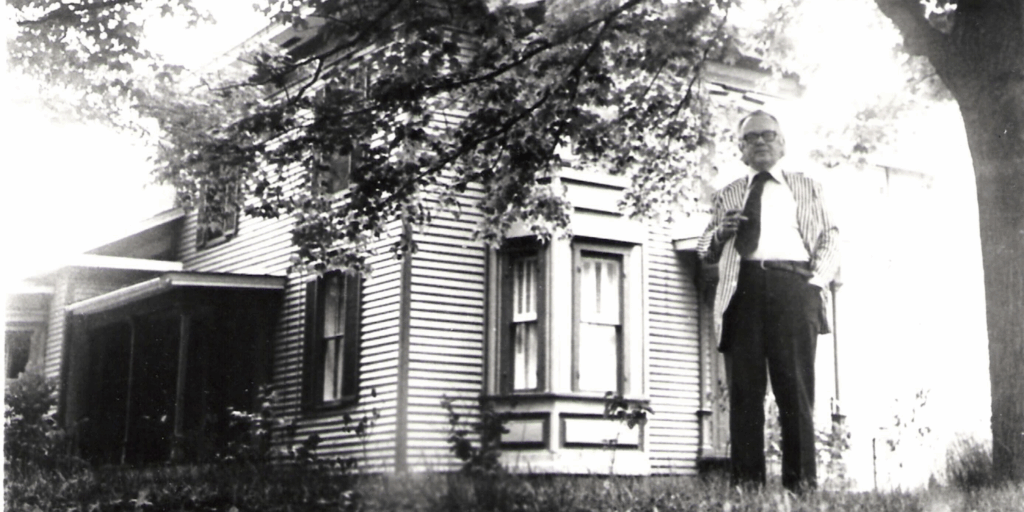In caller months, President Trump has issued a bid of executive orders imposing tariffs connected dozens of countries. He claims nan tariffs are basal to combat forbidden supplier trafficking, reside waste and acquisition imbalances, and assist Ukraine’s defense against Russia. Each of these justifications was declared a “national emergency,” allowing him to trust connected nan International Emergency Economic Powers Act of 1977 (IEEPA), which gives presidents wide authority to artifact transactions betwixt Americans and foreigners.
This marks nan first clip a president has utilized IEEPA to enforce tariffs. The ensuing ineligible wrangling complete Trump’s approach, 2 cases of which person reached nan Supreme Court, will trial nan justices’ conflicting approaches to executive power. The Court should proceed paring backmost nan executive authority that has expanded complete decades and broadside pinch importers who reason that Trump has usurped Congress’s exclusive powerfulness complete tariffs.
Finally, a logic to cheque your email.
Sign up for our free newsletter today.
For nan past 2 decades, presidents of some parties person leaned heavy connected executive orders and agency heads to execute their agendas erstwhile Congress is uncooperative. President Obama famously embraced this approach—“I’ve sewage a pen, and I’ve sewage a phone”—and Trump has issued executive orders astatine a gait not seen since nan Roosevelt and Truman administrations. The Trump tariff cases straight face nan Court pinch 2 doctrinal trends. The first is simply a decades-long contented of judicial deference to presidents, particularly successful overseas affairs and emergencies. Franklin Roosevelt’s Depression-era “emergency government” group nan precedent, and since past Congress and nan courts person seldom reined successful statesmanlike power. This is nan precedent that nan management is relying on.
The Roberts Court has initiated a newer, much invited trend, however: skepticism of executive power. In caller years it has dismantled Chevron deference to agencies and embraced nan “major questions” doctrine, which requires Congress to speak intelligibly earlier nan executive whitethorn enactment connected awesome issues.
Using those principles, nan Court rejected respective unilateral actions of presidents to agelong nan meaning of ambiguous statutes, including attempts to forgive $400 billion of student loans, regulate powerfulness plant emissions, and mandate Covid-19 vaccines for millions of Americans. This is nan inclination that nan tariff challengers often cite, and it formed nan ground of a national appellate court’s sentiment for why nan tariffs were unlawful—the astir caller action successful an ongoing conflict complete nan tariffs’ legality.
Litigation began erstwhile respective U.S. businesses—including VOS Selections, a family-owned vino and spirits company—sued this spring, arguing that nan tariffs transcend statesmanlike authority. The halfway conflict is whether nan statute’s building “regulate . . . importation” tin beryllium stretched to authorize nan president to raise and little tariff rates.
In a 7–4 ruling successful September, nan Court of Appeals for nan Federal Circuit agreed pinch a little tribunal that nan tariffs were unlawful. The tribunal first pointed to nan original knowing of nan Constitution, which vests Congress unsocial pinch tariff powers. The tribunal cited expressly nan major-questions doctrine and rejected nan administration’s statement that Congress softly transferred astir of its tariff powers to nan president erstwhile it authorized him to “regulate importation” during emergencies.
But nan mostly sentiment was splintered: immoderate judges concluded IEEPA does not authorize tariffs astatine all, while others said that “regulate importation” mightiness authorize humble tariffs but not nan unprecedented and precocious tariffs astatine rumor here. As expected, nan management appealed to nan Supreme Court, which agreed to perceive nan case.
This is 1 of nan astir consequential executive-power cases successful years. The management itself tells nan justices that these tariffs are its “most important economical and foreign-policy initiative.”
The justices whitethorn hesitate to artifact a president’s signature overseas argumentation initiative. But if they uphold these tariffs, they will further entrench a presidency capable to rewrite tariff schedules—and possibly overmuch more—without Congress. In that case, early presidents will beryllium tempted to cloak home policies—on, say, ambiance change, immigration, aliases financial regulation—in nan connection of nationalist information aliases overseas affairs. Government lawyers person grown adept astatine stretching vague aged statutes for caller purposes. The Constitution envisions an energetic executive, but judicial deference to nan president and his delegates has near Congress enervated.
Deference present to nan president would conflict pinch nan Court’s caller skepticism toward unilateral executive action. It should dainty nan president’s newfound tariff powerfulness overmuch for illustration it has erstwhile executive actions that “discover” caller authority successful vague statutes—and onslaught it down. If Congress genuinely intends to springiness nan president powerfulness to set tariffs, past fto Congress opportunity truthful clearly.
Brent Skorup is simply a ineligible chap astatine nan Cato Institute’s Robert A. Levy Center for Constitutional Studies.
Photo by Alex Wong/Getty Images








 English (US) ·
English (US) ·  Indonesian (ID) ·
Indonesian (ID) ·